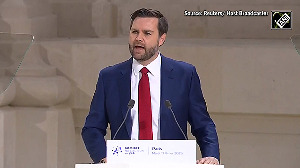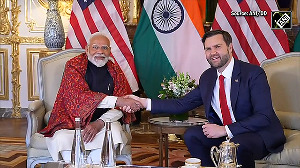The country on Tuesday attributed the suspension of the Doha round of negotiations at the World Trade Organisation to a 'gap in the mindset' of negotiating countries but asserted its economy would not be adversely affected as a consequence.
The suspension of trade talks means all parallel negotiations have also come to a halt. The July-31 deadline for WTO countries to submit their modified revised offers in the services sector has also been put off by at least a year.
"Our economy will not be affected. We are growing at 8-9 per cent even without the Doha round having concluded," Commerce and Industry Minister Kamal Nath said.
"There is no roadmap as of now for trade talks. It is not a question of gap in numbers but a big gap in the mindset. The time between talks should be a period of introspection and reflection for the developed countries," Nath told reporters in New Delhi.
Ruling out further movement at the WTO before the Congressional elections in the US in November this year, Nath said countries could start to engage more in bilateral and regional trade agreements.
Nath said there were already 200 trade agreements in the world and India was also examining economic cooperation with the EU, Japan and East Asian countries. "Bilateral agreements are building blocks to multi-lateral trade," he said, adding even the US was talking of trade agreements with African and South American countries.
Asked if India would consider a bilateral agreement with the US, Nath said, "All options are open. We already have a trade policy forum with the US and we are making good progress in those discussions."
The minister said he would continue to hold dialogue with other developing countries -- the G-20, G-33 and even the G-90 -- as it was important for all the developing countries to stay together.
"While all the 110 developing countries were united at Hong Kong, even the EU was on our side at Geneva," he said, adding the EU had made a new offer to reduce its overall trade distorting subsidies by 75 per cent and cut its farm tariffs by over 51 per cent.
The US provides $19.6 billion subsidies to its farmers and wants flexibility to increase it by another $3 billion, Nath said, adding: "This is not acceptable."
The Doha round of negotiations was to be completed by the end of this year, but with the G-6 talks failing it is now unlikely to happen.
The December-end deadline was set to allow the US to get the trade deal approved by its Congress before President George Bush loses his special powers to push trade agreements without any amendments.
Do you want to discuss stock tips? Do you know a hot one? Join the Stock Market Investments Discussion Group







 © 2025
© 2025